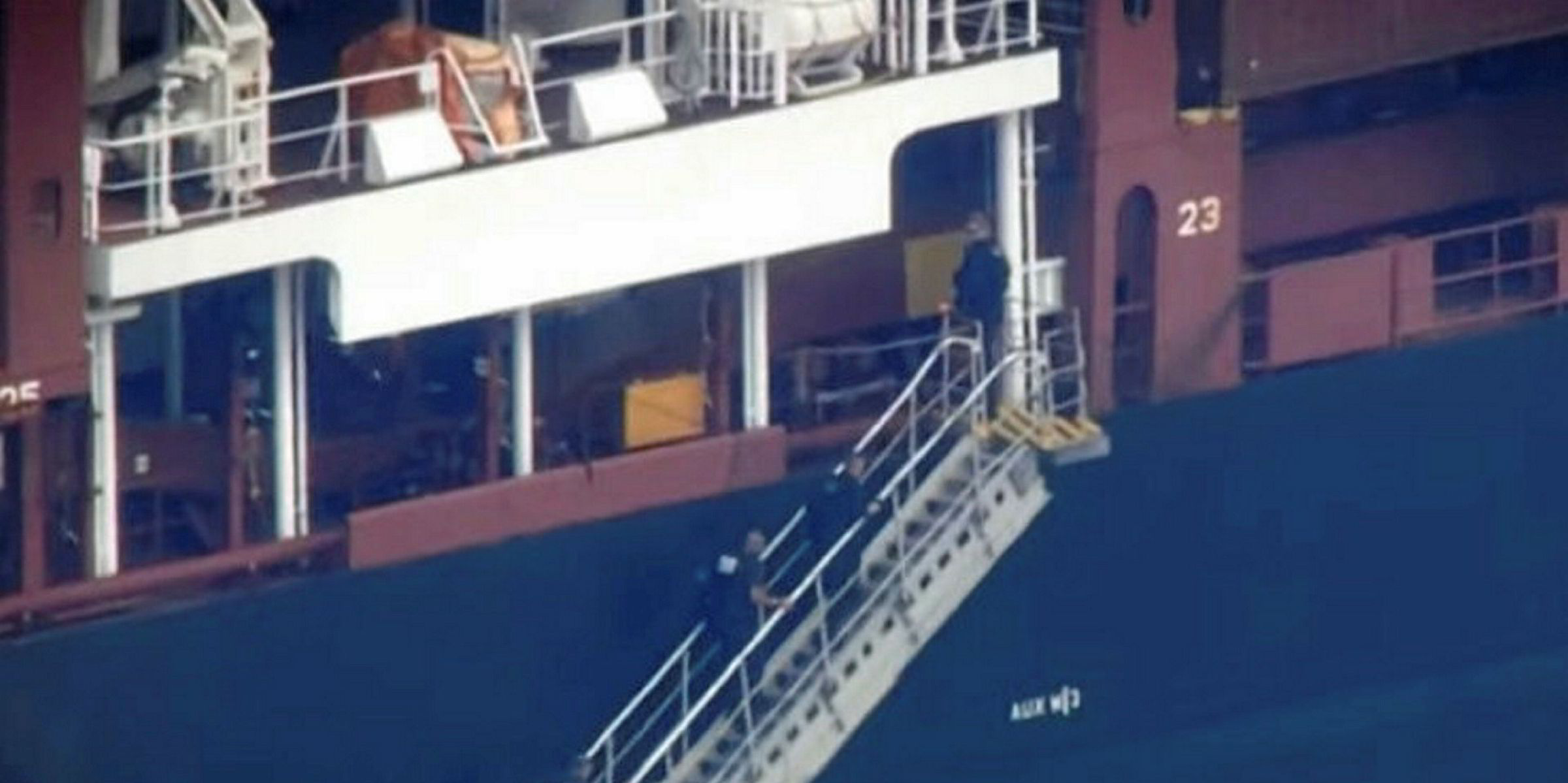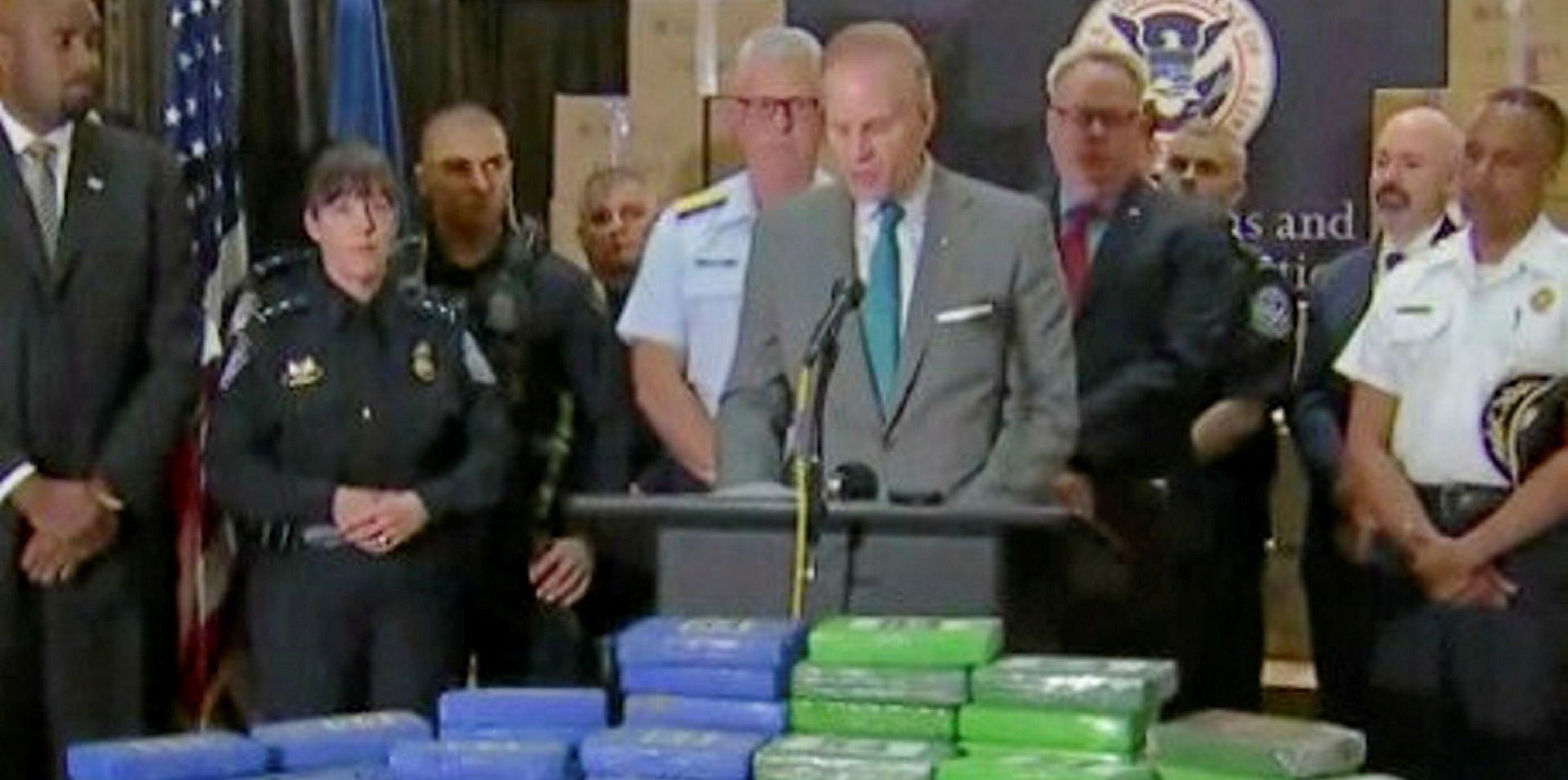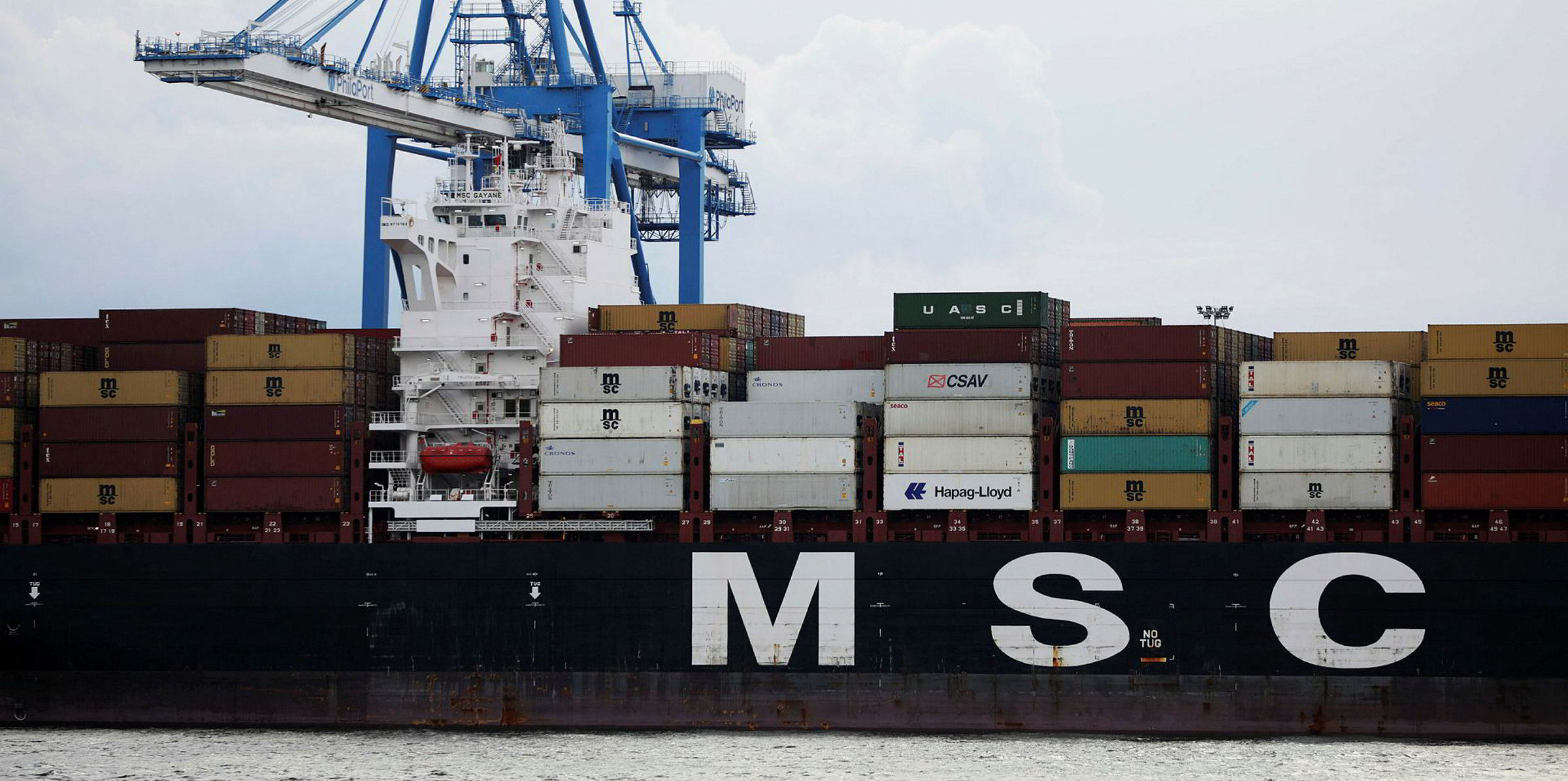US customs officials have taken the unusual step of seizing a huge Mediterranean Shipping Co (MSC) containership at the centre of a $1.3bn drugs bust last month.
Officials found nearly 20 tons of cocaine in seven boxes on the 9,962-teu MSC Gayane (built 2018) at the Port of Philadelphia on 17 June.
On 4 July, Customs & Border Protection (CBP) officials executed a search warrant that led to the vessel's seizure under the direction of the US District Court for the Eastern District of Pennsylvania, US media reported.
“The MSC Gayane is the largest vessel seized in US Customs and Border Protection’s 230-year history and follows the record seizure of almost 20 tons of cocaine discovered on the vessel,” Casey Durst, CBP’s director of field operations in Baltimore, told the Philly Voice.
“Seizing a vessel of this size is an unusual enforcement action for CBP, but is indicative of the serious consequences associated with an alleged conspiracy by crewmembers and others to smuggle a record load of dangerous drugs through the United States."
US Attorney William McSwain called the seizure of the vessel "unprecedented" but added the action was appropriate given the circumstances.
Six crew are facing conspiracy charges, with five remanded in custody.
MSC continues to cooperate
MSC said the ship has been under government control since 17 June while the authorities conduct investigations.
"MSC is assisting and cooperating in any possible way with the authorities and is not the target of the investigation," it added.
The ship was en route to northern Europe at the time of the incident, with calls scheduled at Rotterdam, Antwerp and Le Havre.
"Aside from a small number of containers, which have been held by the authorities as part of their ongoing investigations, all cargoes on the MSC Gayane have been transhipped to other MSC vessels and sent on to their respective destinations," MSC said.
MSC’s Customs-Trade Partnership Against Terrorism (C-TPAT) certification was temporarily suspended following the incident.
"We are actively seeking to assure the authorities that our certification can be reinstated as soon as possible," the company added.
"Notwithstanding this temporary status, MSC continues to comply with all the requirements of the C-TPAT programme and security criteria for ocean carriers including, but not limited to, the screening of customers, maintaining container and vessel security, and the vetting of employees, agents and business partners in accordance with C-TPAT requirements," MSC said.
The Swiss liner giant said drug trafficking is a serious issue impacting the entire shipping industry.
"MSC remains grateful to the government officials in the US for their proactive work and has offered its continued support, building on a longstanding track record of good cooperation with the authorities," the company said.






